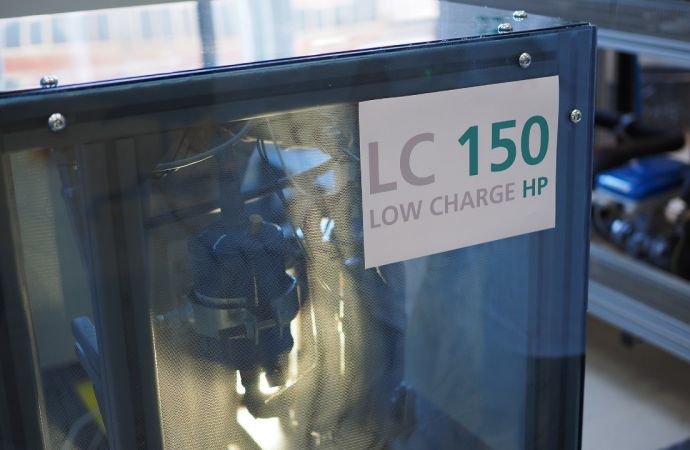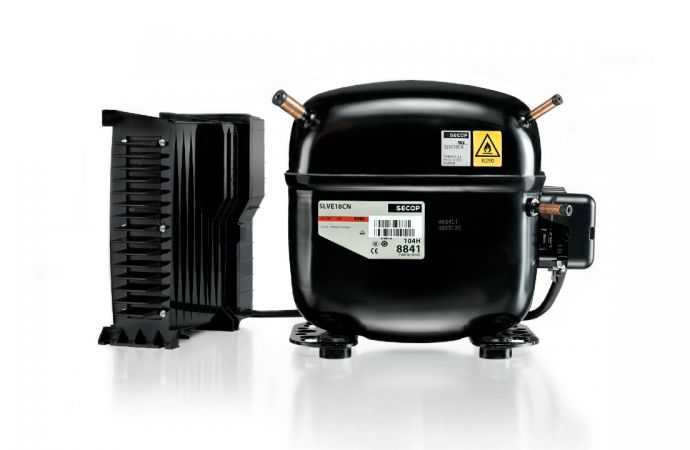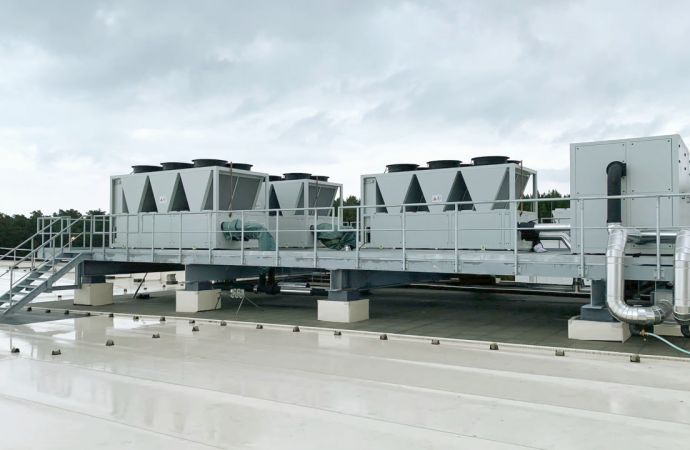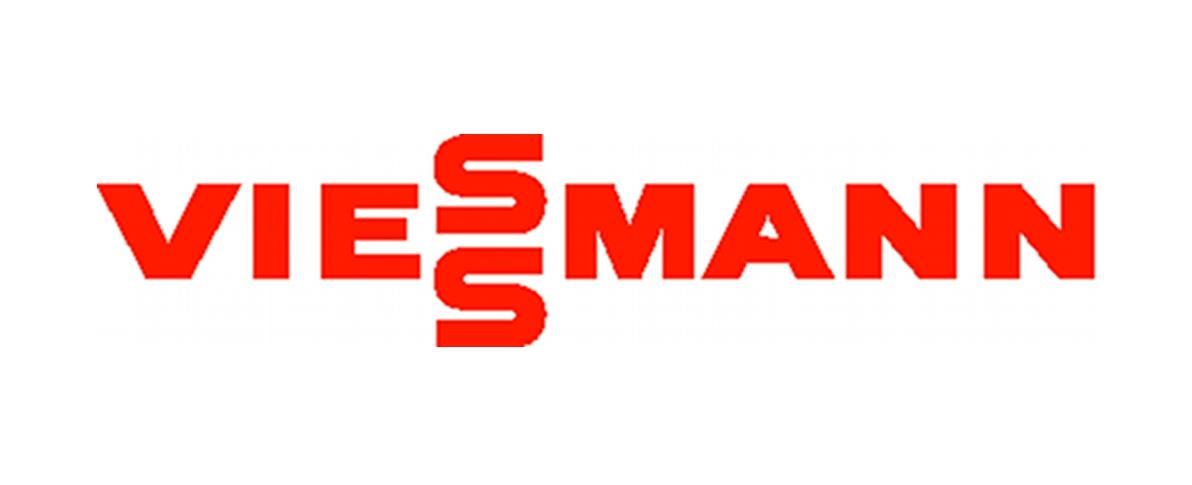Preliminary work achieved a 75% reduction in refrigerant charge.

Low-charge heat pump at Fraunhofer Institute
The Fraunhofer Institute for Solar Energy Systems (ISE), based in Freiburg, Germany, is coordinating an effort to develop a compact, standardized and low-cost refrigeration circuit for propane (R290) heat pumps.
The development of the circuit is part of the “LC150 Development of a Refrigerant-reduced Heat Pump Module with Propane” project, which is funded by the German Federal Ministry for Economic Affairs and Energy. The aim of the project is to accelerate the development and adoption of heat pumps in residential buildings, thereby cutting use of fossil fuels for heating.
The project is supported financially and technically by a number of European heat pump manufacturers, including Vaillant, Kermi GmbH, Bosch Thermotechnik GmbH, Viessmann Werke Allendorf GmbH, BDR Thermea und Ait-Deutschland GmbH. Additional partners are welcome to join until the end of 2020, Fraunhofer said.
The companies are working together to develop a joint platform, rather than separate solutions. The joint platform aims to develop standardized components, and to achieve “significant cost reductions” through higher production quantities and automated production.
“Thermodynamically propane classifies as a very suitable refrigerant, however because it is flammable, it might need more security measures,” said Dr. Lena Schnabel, Head of the Department of Heating and Cooling Technology at Fraunhofer ISE. “Reducing the volume of refrigerant required is, therefore, obvious and also possible to a significant extent, as our preliminary work has shown.”
In 2019, Fraunhofer ISE developed a brine-water cooling circuit, as part of a feasibility study, using existing market-available components. This circuit employed only 150g (0.33lbs) of R290 to achieve a heating capacity of 8kW (2.3TR), a refrigerant charge reduction of 75% compared to existing systems on the market, Fraunhofer said.
“We are confident that this reduction in refrigerant can also be achieved for other capacities and operating points when the singular components are customized for the use of propane,” said Dr. Peter Schossig from Fraunhofer ISE.
According to Fraunhofer, as market acceleration of heat pumps is essential to the “energy transition,” the project intends to use measurements and simulation campaigns to create technical answers and design expertise, in order to achieve both high efficiency and operational reliability. The project partners will receive priority access to these results.
Heat pumps used in place of fossil-fuel-based boilers in buildings can dramatically cut GHG emissions in buildings, but natural refrigerants such as propane need to be used in those heat pumps instead of HFCs, said Menno van der Hoff, Chief Executive Director of TripleAqua Licensing, a Nijmegen, Netherlands-based company.
Van der Hoff delivered this message in his presentation at the ATMO/DTI Technical Conference, an online event hosted by shecco (publisher of this website) and the Danish Technology Institute, on June 23 and 24.
We are confident that this reduction in refrigerant can also be achieved for other capacities and operating points when the singular components are customized for the use of propane."
– Dr. Peter Schossig, Fraunhofer ISE.
Related stories




